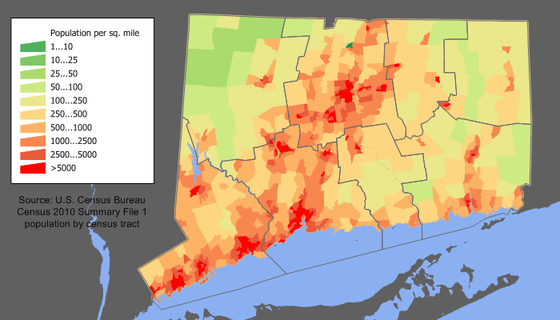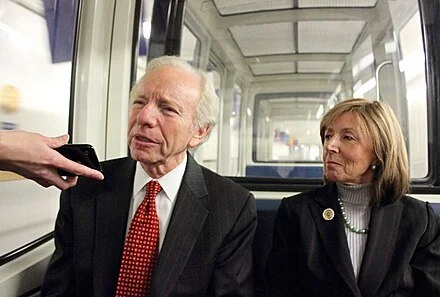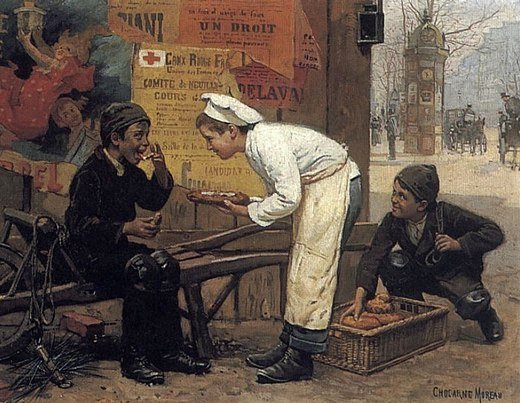
Annual show-off
Western Barndoor Hill, in Granby, Conn.
“It was a radiant October day. Connecticut suggested an outrageous show-off, the low hills overflowing with autumnal brilliance, eruptions of golden leaves, friezes of crimson, the pines maintaining their sober greenness amid the blaze-like sentinels.
“All this last glory of the growing season was nevertheless contained, neat, firmly – for centuries now – under control: This was New England.’’
From the novel A Stolen Past (1985), by John Knowles (1926-2001)
Chris Powell: Connecticut’s public-pension racket
"The Worship of Mammon" (1909), by Evelyn De Morgan.
MANCHESTER, Conn.
An angry reader notes that after 24 years as a judge, the Connecticut Supreme Court’s chief justice, Richard A. Robinson, has just "retired" while joining a big national law firm, Day Pitney, which has five offices in Connecticut. "So now," the reader writes, "he will be getting a full pension from state taxpayers plus another full-time paycheck. Why should the state pay him a pension if he is still working? This is why the state is virtually bankrupt. It’s crazy. How come the press doesn’t report this part of it?"
Maybe what's left of journalism in Connecticut doesn't report the pension angle because it's an old story, not that it ever has been told very well.
Robinson's immediate predecessor as chief justice, Chase T. Rogers, retired six years ago after 20 years as a judge and then went to work at Day Pitney too. She now draws an annual state pension of more than $160,000, quite apart from her salary at the law firm. Since Robinson had four more years as a judge than Rogers, his state pension may be a bit larger. Since both retired judges are in their mid-60s, with continued good health they probably will have quite a few years earning at the law firm at least as much as their pensions.
But such opportunities are not peculiar to retired Connecticut judges. Virtually all retired state employees are eligible to do the same kind of thing -- that is, to collect an excellent retirement pension from state government even as they launch second careers.
The practice is especially popular among state troopers and municipal police officers, who typically can retire with great pensions at a young age -- in their late 40s or early 50s -- and then qualify for other good jobs to take them into their actual retirement.
Sometimes it’s a bit of a racket, as was shown in 2020 by the internationally notorious case of State Trooper Matthew Spina. The trooper was video-recorded by a motorist he stopped in New Haven and the video was posted on the Internet. It showed the trooper hysterical with rage, screaming at the motorist, ordering him out of his car and handcuffing him, bullying and threatening him, searching his backpack, and stomping on his possessions before uncuffing him and letting him go without even ticketing him, since he had done nothing wrong, or at least nothing actionable.
While inflicting this abuse Spina declared that he hated his job and the public and was eager to retire in 14 months.
Spina appeared to be middle-aged and a little journalism revealed that for five years he had been working so many extra hours that his overtime pay exceeded or nearly equaled his base annual salary of almost $100,000. That is, like many other troopers he was risking burning himself out and driving himself crazy to attain the magical threshold of the state pension system -- three extremely high-earning years from which his pension would be calculated.
State police management readily obliged his mad pursuit of a pension bonanza.
Spina indeed retired the next year and now draws an annual state pension of more than $116,000. If he has another job now, his pretend retirement may be almost as comfortable as that of the retired judges.
Of course Connecticut’s state employee pension system isn’t a racket for everyone, but it is often excessively generous. It is a fair question as to why state government should pay large pensions, or any pensions, to people earning substantial amounts in second careers.
But there is a simple explanation. It’s that Connecticut has many more politically active state and municipal government employees and retired employees than it has politically attentive and engaged citizens.
Anyone who sees extravagance here should try putting the pension question to his state legislators. Few legislators are likely to express any criticism, lest they alienate a powerful special interest. If Connecticut is ever to have a better public life, it will need a better public.
Chris Powell has written about Connecticut government and politics for many years (CPowell@cox.net).
Chris Powell: Connecticut’s abortion barbarians
U.S. abortions by gestational age in 2016.
MANCHESTER, Conn.
Now that the issue has been returned to the states and democracy, abortion extremism has revived throughout the country. In some states this extremism aims to make abortion virtually impossible, limiting it to the earliest weeks of pregnancy, sometimes before women may realize they are pregnant. But in Connecticut the extremism goes the other way.
A few days ago Connecticut abortion extremism manifested itself at the state Department of Public Health, which held a hearing on its proposal to repeal three state regulations that pose only slight impediments to abortion, regulations that did not bother advocates of "reproductive rights" back when the U.S. Supreme Court's decision in Roe v. Wade was in force. Indeed, for decades Connecticut has modeled its abortion law on the principle proclaimed by Roe -- that abortion should be an individual right prior to fetal viability but subject to state regulation after, because society has an interest in the unborn when they are able to live outside the womb.
As constitutional law Roe was questionable, as even some advocates of abortion rights acknowledged, but it amounted to a political compromise that commanded majority support nationally, though not in all states.
The Supreme Court's reversal of Roe has changed nothing in Connecticut. There is no movement here to outlaw or seriously restrict abortion, though the public probably would support legislation to require parental consent for abortions for minors, since such abortions conceal rape.
To the contrary, as shown by the health department's proposal to repeal those three regulations, the political movement about abortion in Connecticut is, in its own words, to "go beyond Roe" -- to legitimize late-term abortion, abortion of viable fetuses, in all circumstances.
The department would repeal the regulation arising from the Roe principle that authorizes abortion in the last trimester of pregnancy only to protect the mother's life or health.
This regulation is actually only the pretense of concern for unborn life, since no government authority is checking on late-term abortions and since protecting a pregnant woman's health is construed to include her mental health. In advance of childbirth it's impossible to disprove a woman's claim that delivering her child will drive her insane, absurd as such a claim may seem.
But even the regulation's pretense of concern for viable fetuses is too much for Connecticut's abortion extremists.
Another regulation proposed for repeal requires abortion providers to try to save of life of a fetus -- that is, a child -- who survives an abortion. Connecticut's abortion extremists want to erase any hint of an abortion survivor's humanity. An infant bleeding and gasping for breath is to be coldly left to die in the presence of doctors, nurses, the law, and its own mother -- barbarity.
Also proposed for repeal is the regulation that authorizes medical personnel to refuse to participate in abortions for religious reasons. As Connecticut essentially declares abortion the highest public good, all conscience is to be trampled.
The foremost advocate of repealing the regulations, state Rep. Jillian Gilchrest, D-West Hartford, leader of the abortion extremists in the General Assembly -- they style themselves the Reproductive Rights Caucus -- maintains that the regulation protecting the consciences of medical personnel is unnecessary because federal law already protects them. But Gilchrest would not advocate repealing the regulation if she wasn't hoping that someday abortion extremists will gain control of the federal government, repeal the law, and let Connecticut drive anti-abortion doctors and nurses out of their profession.
Gov. Ned Lamont told the Hartford Courant he wasn't fully informed about the move to repeal the abortion regulations and would be looking into it. But he added perceptively, "I hope it's not a solution looking for a problem."
That's just what it is. For the only problem here is that some people think that while Connecticut is more liberal on abortion than all states except Vermont and Oregon, which have no gestational limits, the state still doesn't exalt abortion enough.
Does the governor agree with the barbarians? Since the health department answers to him, it will be answering for him if it decides to "go beyond Roe."
-----
Chris Powell has written about Connecticut government and politics for many years (CPowell@cox.net).
Chris Powell: Too much higher ed?
The precursor to the University of Connecticut in 1903.
MANCHESTER, Conn.
What a wonderfully subversive and politically incorrect idea has exploded from the committee set up by the Connecticut Conference of Municipalities to study the problem of the state's estimated 119,000 "disconnected" and alienated young people.
Meeting last week at New London City Hall, the group heard a vice president of Yale New Haven Health, Paul Mounds Jr., criticize the widespread misimpression that hospitals and other medical companies hire only applicants with college degrees.
Mounds said Connecticut's hospitals have hundreds of openings for people with high school diplomas or the equivalent. He added that employers should reach out to overlooked potential workers, including former convicts. (A decent job is a strong incentive not to return to crime.)
The president of the Connecticut Business and Industry Association, Chris DiPentima, elaborated. He said many of Connecticut's reported 93,000 job openings don't require college degrees and he urged employers to shift from degree-based hiring to skill-based hiring. DePentima scorned what he called efforts to "over-educate the population."
That is, Mounds and DiPentima were lamenting the cost of the credentialism that has been inflicted on society by higher educators, who profit greatly from it, and by society's own vanity. (See "Doctor" Jill Biden.) Credentialism is why millions of Americans are hobbled with billions of dollars of college-loan debt incurred in pursuit of degrees that conferred little in the way of education or job skills.
Of course, credentialism is a big business in itself, as shown by a review of salaries in higher education, especially administrator salaries. Reducing credentialism might cause a fair amount of unemployment, since much of higher education is just unnecessary overhead expense for society.
Higher education isn't useless. But outside highly technical fields, it is grossly overpriced and distracts catastrophically from the country's big education problem, lower education.
A recent survey by the Connecticut Education Association, the state's largest teacher union, illustrated a big part of the lower-education problem.
It wasn't the survey's finding that teachers in Connecticut say they are underpaid. As they are members of unions it's practically their obligation to feel underpaid, just as they felt underpaid in 1986 when the state's Education Enhancement Act became law, leading to decades of steady pay increases for teachers in the belief that student performance was mainly a function of teacher salaries. (There turned out to be no connection, and student performance has declined as teacher pay has risen.)
No, the CEA survey was valuable for showing that teachers are increasingly demoralized by student misbehavior, which is prompting teachers to leave their profession earlier than planned and making it harder for schools to hire good applicants.
This problem is worst where poverty, child neglect, and mental illness among children are worst -- cities and inner suburbs. While Hartford's school superintendent, Leslie Torres-Rodriguez, showed her usual enthusiasm in welcoming children back to school this week, she also acknowledged that the city's schools are still trying to fill 200 vacant positions. As the CEA survey indicated, teachers want to teach, not break up brawls or restrain children who freak out in class and don't know how to behave because they have so little parenting -- and because school administrations prohibit disciplining them.
This social disintegration is part of government's general impoverishment of society but Connecticut's political class remains oblivious to it and busies itself instead with politically correct irrelevance, as New Haven's city council did the other day even as the city's schools are just as dismal as Hartford's.
The council is promoting a resolution that would apologize for New Haven's having blocked the establishment of a college for Black people back in 1831, nearly two centuries ago.
Maybe in another two centuries New Haven will apologize for the failure of most of its schoolchildren to perform even close to grade level, for the racial achievement gap in its schools, and for the city's constant crime, most of whose victims are members of minority groups. Maybe in two centuries state government will consider apologizing too.
Chris Powell has written about Connecticut government and politics for many years (CPowell@cox.net).
Chris Powell: Conn. isn’t prepared for greater prosperity; sneaky ‘public-benefits’ charges
Millstone Nuclear-Power Plant, in Waterford, Conn.
MANCHESTER, Conn.
When federal census data showed Connecticut's population increasing by about 57,000 in 2021 and 2022, Gov. Ned Lamont construed it as great news, evidence of the state's prosperity under his administration, a remarkable contrast with the population losses of nearby states.
But the other day the U.S. Census Bureau acknowledged that the population increase report was a mistake and that Connecticut probably experienced a population loss of 13,500 during that period.
In a way this may be construed as great too.
For the state has a severe shortage of housing, home prices and rents have been soaring, and homelessness is rising. Experts say the state needs at least 100,000 more housing units just for its current population to be able to live decently. If the state really had gained 57,000 people, it would be under much greater strain.
Connecticut isn't prepared for greater prosperity, and more strain is promised by the increased military contracting coming into the state for which thousands of new workers are needed.
Even if the national economy were entering a recession, Connecticut still would have thousands of inadequately housed people.
Equating construction of inexpensive housing with poverty because of the mess the state has made of its cities, Connecticut has been slow to recognize that its housing policy -- unfriendly if not hostile to new housing -- has been a disaster too.
But the Lamont administration has taken the hint and is proceeding with state government incentives for housing construction. Hartford and New Haven are encouraging apartments and condominiums and are showing that city living can attractive, and a few suburbs are viewing housing proposals more favorably than usual.
It's far from enough but it's a start. If housing initiatives continue for a few more years and state government discourages exclusive zoning and controls spending and taxes, maybe even accurate census data will start showing that more people want to move to Connecticut than leave it for lower-taxed states with milder winters.
xxx
Connecticut has among the highest electric rates in the country, and the big increases imposed last month are painful reminders that the state would have to reduce rates if it would increase its prosperity and population -- or even just maintain its population.
The latest rate increases have two major causes: the decision by the governor and General Assembly to guarantee purchase of the electricity generated by the Millstone nuclear-power plant, in Waterford, as a matter of Connecticut's energy security; and second, the "public benefits" charges that long have been largely hidden in customer electric bills, essentially sales taxes to finance state government programs having little if anything to do with generation and delivery of electricity.
Among the "public benefits" charges is one by which people who pay their electric bills are required to pay as well for people who don't pay but who under state law can't be disconnected during much of the year. Since this charge is a welfare expense, it should be borne by taxpayers generally, not by electricity users particularly.
Indeed, there is no good reason to charge electricity users particularly for any of the "public benefits" hidden in their bills. Insofar as electricity is a necessity of life, taxing it is no more justified than taxing food and medicine would be.
The real justification for financing the "public benefits" from a de-facto sales tax on electricity is that state legislators and governors have liked obscuring the costs of those "benefits" and deceiving the public into thinking that the big, bad electric companies are overcharging. By some estimates 20 percent of the cost of electricity for a typical Connecticut resident results from non-electrical "public benefits" charges.
Members of the General Assembly's Republican minority have been making an issue of this and fortunately have begun pressing it harder. "Public benefits" charges on electricity bills should be eliminated, along with the "public benefits" themselves, or else their costs should be recovered through general taxation or spending cuts elsewhere.
Now who wants to specify the tax increases or spending cuts necessary to get rid of the "public benefits" charges?
Chris Powell has written about Connecticut government and politics for many years(CPowell@cox.net).
Chris Powell: Extending medical insurance to illegal immigrants draws in more of them
MANCHESTER, Conn.
Connecticut's nullification of federal immigration law proceeded this month as state government extended its welfare system's medical insurance to illegal immigrant children by three years, from 12 and under to 15 and under. The children being added will be able to keep their state coverage until they turn 19 -- and maybe, as seems likely, by the time they turn 19 Connecticut will have extended eligibility to a higher age.
Such gradualism is how Gov. Ned Lamont and the Democratic majority in the General Assembly have been handling the issue for years now. They have been maintaining both that decency requires covering all illegal immigrant children and -- in contradiction -- that the state can afford to cover only a few thousand more every year. This gradualism obscures the budgetary and nullification issues enough that most people don't notice and make a fuss about them.
While the policy being pursued by state government may make political sense, it is still mistaken. Its logic is that Connecticut somehow can afford to lift all of Central America and much of the rest of the world out of poverty in the next decade, and it encourages more people to violate federal immigration law.
Advocates of extending the medical insurance to more illegal immigrant children note that even without such insurance Connecticut's hospitals will always have to treat illegal immigrant children when they come to emergency rooms with urgent conditions, and that when such patients or their guardians don't pay, hospitals essentially will transfer the expense to state government and patients who do pay for themselves.
But this rationale does not acknowledge that providing medical insurance to illegal immigrant children rewards and incentivizes illegal immigration to Connecticut and that if the state did not extend the insurance, the parents or guardians of the children being covered might relocate to other states providing coverage. It's not as if illegal immigrants in the United States have no choice but to live in Connecticut. Like everyone else they may look for the place where they are treated best.
While Governor Lamont supported the latest extension of insurance, when it took effect the other day he implied that he had some reservations about it, saying it should be accompanied by "comprehensive immigration reform." But of course it has not been accompanied by "comprehensive immigration reform," and the governor didn't specify what "comprehensive immigration reform" is.
Is it mass amnesty, making all illegal immigrants legal, as many other Democrats want?
Is it deporting all 12 million or so illegal immigrants estimated to be in the country, the objective that has been proclaimed by presidential candidate Donald Trump without an explanation of how the logistical difficulties would be met?
Is it to continue having open borders most of the time, as advocated by Connecticut U.S. Sen. Chris Murphy via the dishonest "compromise" legislation he proposed in February with Sens. James Lankford (R.-Okla.), and Kyrsten Sinema, the former Democrat and now nominal independent from Arizona?
In any case the millions of illegal and unvetted immigrants who have entered the country since President Biden took office are not an accident but policy, a policy of devaluing citizenship and hastening change in the country's demographics and its democratic and secular culture. Extending medical insurance to illegal immigrants -- on top of driver's licenses and other government identification documents, housing, and food subsidies -- is part of that policy. So is forbidding state and municipal police from assisting federal immigration agents, as Connecticut forbids them, thereby making itself a "sanctuary state."
If illegal immigration is never to be simply stopped and immigration law simply enforced, the country won't be a country anymore.
The United States long has welcomed immigration and should continue to do so. But immigration must be limited to what the country can assimilate in normal circumstances. A desperate national housing shortage, strain on hospitals, and schools overwhelmed with students who don't speak English signify the obliviousness to illegal immigration by both the federal government and state government.
Chris Powell has written about Connecticut government and politics for many years (CPowell@cox.net).
Chris Powell: ‘Mansion tax’ wouldn’t help address Conn. housing crisis
The Lauder Greenway Estate, in Greenwich, Conn.
MANCHESTER, Coon.
Apparently you don't have to do much thinking to run a "think tank" in Washington, or at least not a liberal "think tank." The Connecticut Mirror reports that two such "think tanks" -- the Center on Budget and Policy Priorities and the Institute on Taxation and Economic Policy -- have produced a study concluding that Connecticut could raise tens of millions of dollars every year to spend on reducing homelessness (or spend on something else) by imposing an extra conveyance tax on the state's most expensive homes.
Well, duh! Connecticut could get that kind of money by raising taxes or imposing new ones on nearly anything, not just property transfers.
What is the connection between Connecticut's desperate shortage of housing and its most expensive homes? There isn't one. The mansions of "mansion tax" proposals aren't why the state is short of housing and why housing prices have been rising so fast. While mansions typically occupy larger lots, Connecticut remains full of vacant land and, especially in its cities, decrepit former industrial and residential sites. The state has plenty of room for more housing. Land hogging by the wealthy is not getting in the way.
Connecticut's housing shortage has four major causes.
First is the soaring inflation of the last few years, engineered, in my view, by President Biden and Congress. This has driven up prices and mortgage rates far faster than the incomes of ordinary people. People who own residential and other substantial property, especially the wealthy, profit from inflation, but most others suffer from it.
Another cause is the flood of illegal immigration, a matter of Democratic Party policy on both the federal and state levels. It may be no coincidence that the number of illegal immigrants estimated to be living in Connecticut, more than 100,000, is close to the number of housing units the state is said to lack.
A cause of longer duration is exclusive zoning in suburbs and rural towns, zoning that discriminates against less expensive housing, particularly apartments and condominiums. Such zoning generally has community support, since most people don't want their neighborhoods to become more crowded, though of course their own arrival may have increased the neighborhood's population.
Exclusive zoning has its own cause. In some places exclusive zoning arose long ago from racism or ethnic or religious bigotry. But for many years now exclusive zoning has been sustained mainly by fear of poor people generally, a fear largely justified by the disaster inflicted on the cities, their residents, and everyone else by mistaken state and federal welfare and education policies. People don't want the pathologies of poverty -- fatherlessness, child neglect, crime, ignorance, indolence, and dependence -- imported into their neighborhoods by new housing accessible to the poor. This fear has produced zoning and community opposition that now often obstruct even middle-class, owner-occupied housing.
State government has responded with a law that weakens the use of exclusive zoning against housing, but it hasn't been very effective, and in any case inflation, declining real wages, and illegal immigration still stand in the way.
That's why that Washington "think tank" study on raising taxes on the sale of "mansions" and a similar proposal by state Senate President Martin M. Looney (D.-New Haven), to impose a punitive statewide property tax on "mansions" are so dishonest. While these ideas will raise money, there's no guarantee that much of it will be spent to build housing. More likely the money will be used as most extra tax revenue in Connecticut is used -- to pay the compensation of government's own employees, the Democratic Party's campaign army, while punitive taxes on "mansions" provide camouflage for the real objective.
Housing supply can be increased without punitive taxes on large homes -- by stopping inflation, enforcing immigration law, having state government cover all extra school and police costs of new housing, and revoking the welfare and education policies that manufacture poverty.
But that would take the fun out of blaming "mansions" for the declining living standards caused by elected officials who style themselves defenders of the poor even as they make poverty worse.
Chris Powell has written about Connecticut government and politics for many years (CPowell@cox.net).
Chris Powell: What is ‘enough’? One-man crime wave in Conn.
“The Worship of Mammon,’’ by Evelyn De Morgan
MA NCHESTER, Conn.
Connecticut is not just thrilled that UConn men's basketball coach Dan Hurley has declined a lucrative offer from the Los Angeles Lakers. People are also moved by the expressions of loyalty from the coach and his wife, Andrea -- not just loyalty to the state but, as Mrs. Hurley noted in a television interview, loyalty to the players the coach had recruited and who expected to be playing for him next year.
Of course this loyalty was not exactly reciprocated by some of the players on this year's championship UConn team. They are leaving college early for what will be their own lucrative contracts with the pros.
But there's a big difference between the situations of the players and the coach. The players aren't making much if any money and may suddenly earn millions of dollars for each year of early departure. But the coach already is making millions each year, and for having won consecutive national tournaments he is likely to make millions more from UConn with a big raise that will bring his annual compensation close to what the Lakers were offering him.
When one is already earning big money, loyalty isn't the sacrifice lately imagined and cheered by UConn basketball fans, people for whom a night out with the family for dinner and a game is a substantial expense. Indeed, as F. Scott Fitzgerald wrote, "the very rich are different from you and me."
But then there are differences among the rich too.
A recent essay recounted that two financially comfortable guys were discussing a billionaire who had just undertaken a business plan he expected would bring him even greater wealth. One guy boasted to the other: "I have what he'll never have." The other guy asked: "What's that?" The answer: "Enough."
If Hurley has enough for staying put at UConn -- even if "enough" includes a huge raise -- it still may be considered relative loyalty, and Connecticut may be glad of it all the same, but just shouldn't overdo it.
That wasn't a parody of criminal justice in Connecticut on the front page of The Hartford Courant the other day. It was reality that should have been shocking, except that repeat offenders on the loose are now so numerous in the state that few people -- and apparently none in authority -- are shocked.
State police say a 35-year-old Bozrah man with a long criminal record sped through a stop sign in Griswold, ramming another car and killing one of its passengers, Charlotte Degrado, 96, of Branford. The Courant says the offending driver has at least a dozen criminal convictions, has 10 more criminal cases pending against him, and was free because, after being arrested six times since January, he had managed to post $275,000 in bonds.
State police say the driver and his companions in the speeding car ran away after the crash but the driver was apprehended while hiding in nearby woods with a bag of fentanyl pills and $4,693 in cash.
The driver's convictions, according to the Courant, include larceny, burglary, narcotics possession, and engaging police in pursuit, and he has served three prison sentences since 2016 -- 18 months, a year, 90 days. He repeatedly has violated his probations.
If elected officials in Connecticut were more concerned about public safety than in reducing the state's prison population, they might investigate this situation urgently, interviewing every prosecutor and judge involved with the repeat offender's cases. While individually some of his crimes may seem minor, cumulatively they scream incorrigibility.
Could no one in the criminal-justice system perceive this before the fatality? Could no one note the chronic offender's 10 pending cases and realize that speedy trials and maximum sentences would be necessary to halt his crime wave?
Since Gov. Ned Lamont and state legislators don't seem to be taking note of the atrocity, will anyone in journalism confront them about it?
Or will the always dim prospect of reform be left to any efforts made by the dead woman's grieving family?]
Chris Powell has written about Connecticut government and politics for many years (CPowell@cox.net).
A matter of 'marital privacy'
“Late every night in Connecticut, lights go out in the cities and towns, and citizens by the thousands proceed zestfully to break the law.’’
—From the March 10, 1961, issue of Time magazine on the now long gone Connecticut law banning contraceptives. In 1879, Connecticut enacted a statute that banned the use of any drug, medical device or other instrument used to prevent contraception.
In its 1965 ruling Griswold v. Connecticut, the U.S. Supreme Court ruled that the U.S. Constitution protects the liberty of married couples to use contraceptives without government restriction. The Connecticut law, they decided, violated the "right to marital privacy".
Chris Powell: Coaching a college basketball team is easier than legislating
Dan Hurley
MANCHESTER, Conn.
Celebrating Dan Hurley's decision this week to keep coaching the men's basketball team at the University of Connecticut, state House Speaker Matt Ritter confirmed a thought previously reserved for cynics.
That is, UConn's success with basketball is state government's great rationalization for giving the university whatever it wants financially year after year.
Ritter said: "I think there are times when legislators wonder, 'Why UConn? Why higher education?' There were comments about how we were giving so much money to UConn even this year. But Dan Hurley and [women's basketball coach] Geno Auriemma are four million more times popular than the most popular state legislator."
True. But then in a crucial respect the coaching jobs are much easier than those of state legislators -- at least the jobs of legislators who aspire to serve the public interest.
All the coaches have to do to please their constituents is win basketball games. Their players are united on this objective.
The coaches have luxurious contracts that indemnify themselves against failure, as was recently demonstrated by UConn's embarrassing and spectacularly expensive experience with former men's basketball coach Kevin Ollie.
There are no luxurious contracts for state legislators. They are elected for two-year terms with part-time salaries for what is often full-time work or close to it.
Their teams aren't unified. No, their constituents have a thousand objectives, many of them contradictory.
While UConn always gets plenty of money despite its many management failures and financial excesses, state legislators have to find money themselves, first to pay for government and then for their own campaigns.
But most of a legislator's constituents want someone else to pay for the goodies government gives them. As the economist Frederic Bastiat put it long ago, "Government is the great fiction by which everybody tries to live at the expense of everybody else."
And even when the public interest is clear, there is usually a venal special interest with enough politically active adherents to get their way amid the public's obliviousness.
The popularity of Hurley and Auriemma might crash as soon as they had to assemble a state budget or take a position on a controversial policy issue -- say, having 6-foot-4, 240-pound transgender players on high school and college women's basketball teams.
If many state legislators are the tools of special interests, it's because so few of their constituents pay attention that making any friends requires being a tool.
MONEY WON'T FIX SCHOOLS: What exactly does it mean that the state Education Department has instructed its commissioner to look into improving the finances of Hartford's ever-struggling school system?
Certainly there is much to improve. The academic performance of the city's students long has been terrible. Hartford's schools are facing a $40 million budget deficit and laying off hundreds of employees even as the system has tens of millions of dollars of emergency federal aid waiting to be spent.
Republicans in the state Senate have good questions about the state's intervention: Will state money be spent? Will Education Department employees be embedded in the Hartford school administration? Who will make decisions? Will labor contracts be reviewed? Will other struggling school systems in the state get similar evaluations? (They should.)
The most important question here may be whether schools can accomplish much of anything when most of their students lack responsible parents and are largely neglected. Since this may be the most important question, it has never been asked officially.
In any case there is a small indication of progress. Hartford school officials lately have been openly complaining that their schools are being drained financially by tuition transfers required by the regional "magnet" schools craze prompted in the Hartford area by the long-running Sheff v. O'Neill school desegregation case. The magnets are also draining the city's neighborhood schools of their better students. Measured by educational and integrational results, the Sheff case has been a billion-dollar disaster.
Money will never solve the education problem. It's a matter of far bigger issues that politics isn't ready to face.
Chris Powell has written about Connecticut government and politics for many years. (CPowell@cox.net) .
Chris Powell: Silly anti- ‘climate change’ drives in Vermont and Connecticut
MANCHESTER, Conn.
While it may be hard to believe, Vermont seems to have gotten ahead of Connecticut in "climate change" craziness.
The Green Mountain State has just passed a law allowing itself to charge big oil and natural gas companies for the cost to the state of the "greenhouse gases" emitted by use of the fuel sold by the companies between 1995 and 2024. The state itself will choose the criteria for calculating the cost. Mainly Vermont wants to blame the oil and gas companies for the extensive damage done in the state last year by terrible flooding.
Under the new law it won't matter that the fuel products on which "climate change" is being blamed were and remain not just perfectly legal but also crucial to modern civilization. No matter also that nearly everyone in Vermont has been using those products ever since they became available. Vermont wants to blame the manufacturers of the fuel products, not their users, the people for whom those products were made -- the people without whose demand the products wouldn't have been made at all.
Indeed, the mere manufacture of fuel didn't emit the "greenhouse gases" Vermont is complaining about. The use of them did.
Like all other states, Vermont already has a fuel tax. If the state wants to recover what it believes are its costs of the "climate change" caused by use fuel, it can raise that tax and get the money from the parties responsible for their use: its own residents. And if the state really believes that "climate change" disasters are being caused by the use of oil and gas, Vermont already should have outlawed those fuels.
Of course the legislators who passed the law don't really believe its premises. The new law is just a money grab that, if ever implemented, will be nullified in one court or another after years of expensive litigation. But until then legislators who voted for the law will pose as saviors of the environment.
Meanwhile Connecticut's climate alarmists want Gov. Ned Lamont and leaders of the Democratic majority in the General Assembly to put "climate crisis" legislation on the agenda of a special legislative session that is to be called to make a fix in motor vehicle assessment law, a special session that was supposed to be brief.
The "climate crisis" bill at issue passed the House of Representatives during the recent regular session but was stalled by some of the majority Democrats in the Senate who thought that it was more important to guard against climate change by modifying municipal zoning. (The Senate's Republican minority almost certainly would have opposed the "climate crisis" bill, as the Republican minority in the House did.)
After declaring a "climate crisis," the bill would just specify options for reducing "greenhouse gases" by 2050 -- safely beyond the political lifespans of most current legislators. Actual sacrifices would await another day.
Whatever one thinks of "climate change" and its causes -- natural phenomena or manmade phenomena arising only in recent decades -- the "climate crisis" legislation is silly. For even if "climate change" is substantially the result of the use of oil, gas and coal as fuel, Connecticut can do nothing meaningful about it.
The state could outlaw those fuels and shut down all its industry requiring a smokestack and all its transportation requiring a tailpipe and the rest of the country and the rest of the world would continue to use those fuels. Since Connecticut's contribution to the world's "greenhouse gases" is tiny, the state would only disadvantage itself without achieving any measurable reduction in those gases.
Even a national policy of eliminating oil, gas and coal as fuel would have little impact on "greenhouse gases" worldwide, since the developing world, including industrial giant China, will continue to use those fuels until something better comes along. Only a worldwide solution is worth pursuing -- if there really is a problem to solve.
Chris Powell has written about Connecticut government and politics for many years (CPowell@cox.net).
Two Connecticuts
“I lived in a town called New Canaan {Conn.}, which is far too snobby to even mention celebrities. Many American towns are famous for things like ‘See the World’s Largest Ball of String.’ I think my town’s would probably have to be ‘Most Pretentious People.”’
-- Katherine Heigl (born 1978), American actress
Skyline of Norwich, Conn.
“Eastern Connecticut is very different from western.; we’re more liverwurst than pate, more bowling than polo.’’
— Wally Lamb (born 1950), American novelist and native of the old industrial town of Norwich, Conn.
Chris Powell: Innovation is needed to fight poverty and violence; Conn. customer satisfaction
The P.T. Barnum (the circus guy) Museum, in Bridgeport.
MANCHESTER, CONN.
Appalled by the shooting of five people in several incidents in Bridgeport over the Memorial Day weekend, Connecticut Gov. Ned Lamont hurried to the city on May 28 to meet Mayor Joe Ganim and other officials and show moral support.
While Bridgeport's police department is said to be understaffed and to suffer high turnover -- police work may be easier almost anywhere else -- the governor didn't promise any extra help for the city. He thought state initiatives that are already underway with city government are enough for the time being.
In contrast .Mayor Ganim thundered emptily for the television cameras that the city would ensure that the perpetrators of the weekend shootings and other shootings are punished severely. Of course they'll have to be apprehended first.
Just a few hours later four people were shot in an incident in Waterbury. This one didn't prompt a visit from the governor, as the daily business of state government had resumed with the governor's announcement of the allocation of $100 million to the state Economic and Community Development Department for establishing "innovation clusters." This is the euphemism for more political patronage dressed up as economic growth.
If only one of those clusters could figure out how to end gun violence in the cities, or, better still, figure out how to reduce poverty in Connecticut.
Most people in the state -- at least most of those who don't hold elective office -- have noticed that violent crime is closely correlated with poverty. So most people won't be surprised that three of the shootings that appalled the governor took place at the P.T. Barnum Apartments public housing project in Bridgeport and not in exclusive neighborhoods in Darien or Avon. This has been the way of life in Connecticut for many decades.
Nor have the two major state government policies involving poverty changed over that time. Connecticut long has maintained a welfare system that subsidizes childbearing outside marriage and thus deprives children of fathers and the income, discipline, and guidance they provide. The state also long has promoted children throughout school even if they fail to learn anything, thereby destroying their incentive to learn.
These policies have delivered tens of thousands of young people to adulthood largely demoralized and unable to provide for themselves adequately. They are even less able to provide for themselves now that government-instigated inflation has sharply raised the price of necessities. In such circumstances people get stressed, alienated, angry, disturbed, and predatory.
Announcing that $100 million for "innovation clusters," the governor said: "Connecticut has the best-educated and best-trained workforce in the nation. ... We are the home of innovation."
Maybe, but it wasn't the success of an educated and trained workforce that compelled the governor to rush to Bridgeport the other day. The visit was compelled by another deadly manifestation of the state's huge and growing underclass, which still gets no innovation from state government no matter how many lives are lost or damaged.
WE'RE NOT THAT BAD: According to Seattle-based survey firm Qualtrics, the services provided by Connecticut state government produce the second-worst customer satisfaction rate among the 50 states and the District of Columbia, with Connecticut's 51 percent rate leading only that of Illinois with 49 percent.
Are government services in Connecticut really that bad, or are the state residents who responded to the survey just more demanding and would find themselves even less satisfied if they lived elsewhere?
In any case, a customer-satisfaction rate as low as the one reported by the Qualtrics survey would suggest great political dissatisfaction too. But it's hard to find much evidence of that in Connecticut. For many years the same political party has controlled all major state and federal elective offices and has held comfortable majorities in the General Assembly.
Political dissatisfaction? It's hard to find even political competition here.
Of course, some state agencies could be friendlier, but next-to-last in the country in customer satisfaction is almost impossible to believe.
Chris Powell has written about Connecticut government and politics for many years (CPowell@cox.net).
Chris Powell: If you chant ‘Trump!’ enough, Conn. Democrats’ problems vanish
MANCHESTER, Conn.
While Donald Trump can be intemperate, reckless, and megalomaniacal, that is not why he has been so damaging to politics in Connecticut. Trump is most damaging to politics here because he has provided an excuse for so many members of the state's majority party, the Democrats, as well as their allies in the news media, to avoid serious discussion of the many failures of public policy essentially just by chanting: "Trump! Trump! Trump!"
Connecticut has big problems that have not been addressed seriously: education and the declining skill level of the rising workforce, worsening poverty, prohibitive housing prices, state government's indebtedness, a lack of economic and population growth, racial segregation, and taxes that are high even though none of these problems has been alleviated much if at all.
Not that the minority party, the Republicans, necessarily would do much better with these problems. Indeed, the most recent 16 years of Republican state administration (1995-2011) differed from Democratic administration only insofar as taxes didn't go up as much as they might have under a Democratic administration. Of course that's something, but under Republican administration Connecticut's downward trends weren't halted, much less reversed. Connecticut didn't get more value from its government.
While Trump, the presumptive Republican nominee for president, is leading the presumptive Democratic nominee, President Biden, in the recent national polls, nobody expects Trump to carry Connecticut. The state is too Democratic, and just chanting "Trump! Trump! Trump!" here will probably distract enough from the big national issues -- inflation and the economy in general, illegal immigration, and the expensive and unnecessary proxy war in Ukraine and the danger that it will erupt into a European war or even a world war. (A currency war arising in part from the Ukraine war is already being waged.)
The Democratic chant will help sustain the political status quo in the state but it won't make Connecticut great again. For that to happen, many mistaken premises of policy will have to be challenged.
xxx
WHY GO TO SCHOOL?: Last week Gov. Ned Lamont joined a White House conference about chronic absenteeism from school, a problem nationally as well as in Connecticut. Among the participants were U.S. Education Secretary Miguel Cardona, formerly Meriden's school superintendent and Connecticut's education commissioner.
They discussed the slight success in getting children to attend school more often by having school employees call or visit the homes of the chronically absent and asking parents what the problem is and if government can help them solve it.
Warning parents that not getting their children get to school is neglect is not planned. The politically correct presumption is that parents, especially single parents, really shouldn't be held responsible for themselves and their children. Many neglectful parents probably sense this presumption and feel excused.
Connecticut's elected officials should look deeper into the problem, especially since student proficiency in the state has been declining for years. They should ask: What exactly is the incentive for children to go to school today and for parents to get them there?
In the old days social pressure helped get children to school and to learn. For failure to learn risked the embarrassment of being held back a grade.
But no more. For Connecticut's main educational policy long has been social promotion: All students are promoted regardless of academic failure, in the belief that being held back is too damaging to a child's self-esteem -- as if failure to learn is not more damaging when a child grows up.
Meanwhile, the decline in the skill level of Connecticut students, and thus the decline in their ability to support themselves, is being met with more government subsidies for them as impoverished adults, so neglecting one's education is less costly to the individual and more costly to taxpayers.
In the old days most people thought education was crucial to a better life. Today many people seem to think otherwise. So chronic absenteeism may continue until something changes that thinking. Politically correct as it may be, asking negligent parents nicely isn't likely to help much.
Chris Powell has written about Connecticut government and politics for many years. (CPowell@cox.net) .
Chris Powell: Mental illness isn’t a problem of shortage of treatment
At Connecticut Valley Hospital, in Middletown, Conn., a public hospital operated by the state of Connecticut to treat people with mental illness. Opened in 1868, it was historically known as Connecticut General Hospital for the Insane and is in a 100-acre historic district listed on the National Register of Historic Places.
MANCHESTER, Conn.
When confronting a problem most people instinctively look first for its cause and try to eliminate it.
But such logic doesn't apply so much in government, as indicated by government's response to what is reported to be an explosion of mental illness among young people.
Teachers and school administrators throughout Connecticut say many more of their students are seriously troubled these days.
The commissioner of the state Mental Health and Addiction Services Department, Nancy Navaretta, reported the other day that one in seven teenagers is mentally ill and that suicide is the second-leading cause of death for 10- to 24-year-olds. State government's child advocate, Sarah Eagan, added that 48 Connecticut children between the ages of 10 and 17 killed themselves from January 2016 through September 2022.
So members of Congress, including Connecticut's U.S. Reps. Rosa DeLauro and Jahana Hayes, are sponsoring what they call the Expanding Access to Mental Health Services in Schools Act, which aims to put counselors or clinics in more schools. Educators and social-service people in the state are cheering them on.
But even if the legislation was enacted immediately it would be many years before it had any effect on the problem. For the legislation just sets up a federal agency for overseeing the training, qualifications, assignment, and compensation of school mental health counselors.
The legislation would appropriate no money at the outset. Money might be appropriated eventually, though like everything else at the federal level these days, money for mental health would have to get in line behind money meant to continue the war in Ukraine and support illegal immigrants.
So government might be far more helpful if it investigated the causes of the increasing mental illness of young people. Exactly why are so many more young people becoming mentally ill?
At a recent gathering at a school in Waterbury, Representative DeLauro attributed the mental illness epidemic to bullying, stress, isolation, and social media.
But young people always have faced bullying, stress, and isolation. Youth is the primary time of life for apprehension, depression, and mental disturbance. So why have the causes of mental illness in young people become so much worse in recent years?
Schools are notorious for failing to act effectively against bullying, perhaps because political correctness does not permit seriously disciplining students for misconduct. With a little political courage, school policy could be changed.
Social media are new, but parents can disconnect their children from social media by restricting their use of mobile phones.
Other causes of stress among children and society generally are easy to see, at least if you're not a member of Congress. In recent years inflation has been worst with the top two necessities of life, food and housing. Food banks and housing authorities in Connecticut report that food and housing inflation have made many people desperate and that even fully employed people are having much trouble supporting themselves and their families.
But few members of Congress, and none from Connecticut, take any responsibility for inflation and the stress it has put on society. Members of Congress are content to congratulate themselves for the patronage goodies they are distributing that have been purchased not with tax money but borrowed money, money that the country never will be able to repay.
Parenting was already declining throughout the country long before government's inflationary response to the recent virus epidemic. A third or more of American children are growing up without a father in their home, thus lacking the moral, emotional, and financial support a father ordinarily would provide. Impoverishing many of these households, inflation has weakened the parenting of many more children.
Mental illness among young people might be addressed directly by aiming at its causes -- by knocking inflation down sharply and ending the welfare system's subsidies for childbearing outside marriage.
But instead advocates of the Expanding Access to Mental Health Services in Schools Act envision a lot more government employment and regulation, as if the bigger problem is the shortage of treatment for mental illness and not the explosion of mental illness itself.
Chris Powell has written about Connecticut government and politics for many years (CPowell@cox.net).
Chris Powell: Lieberman often brilliantly navigated around the political shoals
Sen. Joe Lieberman and his wife, Hadassah, riding the United States Capitol subway system in 2011
MANCHESTER, Conn.
Joe Lieberman was Connecticut's most consequential politician of his era, holding high office in the state for 40 of the 42 years between 1971 and 2013, 24 of those in the U.S. Senate. He was also often an insurgent and sometimes crossed his party's establishment in a big way but got away with it, probably because he was calm and genial and quietly exuded integrity even when causing controversy.
Lieberman's involvement in politics began in New Haven with the anti-Vietnam war campaigns of 1968 and 1970, when he was not long out of Yale University. He shocked observers by winning a primary against the state Senate's Democratic majority leader, Edward L. Marcus, of New Haven, who had been distracted by his campaign for U.S. senator.
Instantly Lieberman was a star. Soon he was Senate Democratic majority leader. His ascent was stalled by his defeat for the U.S. House from the New Haven district in 1980 after a terrible campaign. But he remained so well regarded that he easily won the party's nomination for state attorney general, in 1982, whereupon he transformed the office into what it is almost everywhere now -- a noisy platform as "the people's lawyer," hectoring and suing bad guys and gaining spectacular publicity if not spectacular results.
The attorney general's office offered Lieberman a double opportunity -- not just for constant publicity but also, in 1988, for challenging Connecticut's Republican U.S. senator, Lowell P. Weicker Jr., without having to risk losing the attorney general's office, where his term extended to 1990.
After three terms in the Senate Weicker had a national reputation, gained first by denouncing President Richard Nixon, a fellow Republican, amid the Watergate scandal, then by slighting Republicans in other situations as Connecticut became more Democratic. Republicans resented renominating Weicker and Lieberman saw his chance. Since his liberal credentials were solid, he struck some conservative poses to appeal to Republicans sick of Weicker, who notably included National Review editor and columnist William F. Buckley Jr., a Connecticut resident.
Republican defections to Lieberman were probably decisive, as he won by just 10,000 votes, seven-tenths of a percentage point.
In the Senate Lieberman was a reliably liberal Democratic vote, and he easily won re-election in 1994. But in 1998 he had the nerve, rare among Democrats, to scold President Bill Clinton, also a Democrat, for his affair with an intern in the White House. While Lieberman voted against Clinton's impeachment, his criticism of a president from his own party was taken as evidence of integrity. So when the Democrats nominated Vice President Al Gore to succeed Clinton as president in 2000, Gore chose Lieberman as his vice-presidential running mate in large part to signify some independence from Clinton.
Gore and Lieberman won the popular vote but lost the electoral vote. Lieberman simultaneously ran for re-election to the Senate in Connecticut and easily won again.
Lieberman's support for the U.S. war against Iraq in pursuit of imaginary "weapons of mass destruction" cost him renomination by the Democrats in a primary in 2006 narrowly won by Ned Lamont, now governor. But running as an independent and receiving most Republican votes, Lieberman easily won re-election and remained in the Senate Democratic caucus.
The next year Lieberman supported Republican Sen. John McCain for president over the Democratic nominee, Barack Obama. Still the Senate Democratic caucus didn't dare expel him.
Lieberman worked well enough with Obama, though he has been blamed or credited for keeping a "public option" out of the "Obamacare" national health-insurance legislation, something perhaps to be expected from a senator from a state with a big insurance industry.
Lieberman retired from the Senate in 2013, but when he died March 27 at 82 he was still much involved in politics through the No Labels movement, trying to recruit a presidential ticket to provide an alternative to the awful Joe Biden and Donald Trump. In any event, No Labels gave up that effort.
Chris Powell has written about Connecticut government and politics for many years (CPowell@cox.net).
Chris Powell: A heavy discounting of outrageous crime in Conn.; teachers aren’t underpaid
MANCHESTER, Conn.
Next time the governor and state legislators boast about the decline in Connecticut's prison population, remember the recent report in the Hearst Connecticut newspapers about the state Board of Pardons and Paroles.
By a vote of 2-1 after a hearing in January, the board approved parole for a Bridgeport man who had served only 26 years of a 60-year sentence for an especially outrageous crime in 1995. He kidnapped a 16-year-old girl from her home in Pennsylvania and took her to Bridgeport, where he imprisoned her for weeks, molesting her, stabbing her, burning her with a cigarette, and mutilating her, carving his name into her chest with broken glass.
Of course the perpetrator already had an extensive criminal record. For years after his conviction he denied the crime and brought fruitless appeals. He accepted responsibility only when seeking parole.
Prosecutors opposed his application but the board granted it in large part because he had participated in various programs in prison. His victim said she did not oppose parole but is still recovering from her ordeal and just wanted it to be over.
Connecticut should want such hefty discounting of criminal justice to be over. But it won't be over any time soon.
While there is no constituency at the state Capitol for improving the ever-declining performance of students in Connecticut's public schools, there is a huge constituency for spending more money in the name of education even as student enrollment declines. That constituency is so large that no one at the Capitol dares to talk back to it even as it spouts nonsense.
More nonsense came the other day from Kate Dias, president of the state's largest teacher union, the Connecticut Education Association. "The critical thing to remember," Dias told education money seekers at the Capitol, "is we've never fully funded education."
But exactly what is "fully funded"? Dias didn't say, but "fully funded" seems to mean whatever the teacher unions want.
If education was "fully funded," Dias added, "my teachers wouldn't have a starting salary of $48,000. ... We've never actually done the really hard things that we need to do that would allow our teachers, our pre-K, everyone to make reasonable middle-class wages in Connecticut."
Teachers in Connecticut aren't middle class? According to the CEA's national affiliate, the National Education Association, the average teacher salary in Connecticut is $81,000, which doesn't count excellent benefits and much time off during the summer.
And if Dias is sore about an average starting salary of $48,000, that may be the fault of teacher unions themselves for negotiating contracts that allocate most increases in school spending to people who are already employed and union members. Why raise salaries for people who aren't paying union dues yet?
Where is the elected official or political candidate who dares to ask how increases in education spending correlate with student performance, or how student performance correlates with anything beyond family income and parenting? Any such elected official or candidate soon would find scores of teachers in his district vigorously supporting his opponent's campaign.
Indeed, that seems about to happen to state Sen. Douglas McCrory, D-Windsor, an administrator with the Capitol Region Education Council, who -- remarkably, since he is a Democrat -- may be the General Assembly's most vocal advocate of charter schools and school choice.
McCrory is being challenged for renomination by a school board member in his home town and by an official of a union that represents school employees in Hartford.
More than improving education, McCrory's opponents may want to make sure that schools don't ever have to compete for students -- that school choice is limited to families who can afford private schools.
Special interests are political machines that are very good at getting their people to vote. The public interest has no political machine.
Chris Powell has written about Connecticut government and politics for many years (CPowell@cox.net).
Chris Powell: What about respecting ‘diversity’ of views on abortion?
“The Genius of Connecticut,’’ by sculptor Randolph Rogers, a plaster version of the bronze statue (destroyed) originally mounted on top of the dome of the Connecticut Capitol, is exhibited on the main floor.
Soviet poster c. 1925, warning against midwives performing abortions. Title translation: "Miscarriages induced by either grandma or self-taught midwives not only maim the woman, they also often lead to death."
MANCHESTER, Conn.
Where is it written that the crazier Alabama, Texas, or Idaho get, the crazier Connecticut must get too?
But that seems to be the premise of the leftist faction of the Democratic majority in the General Assembly when it comes to abortion.
Alabama lately became famous for the Bible-thumping decision of its Supreme Court that, as a matter of law, frozen human embryos must be considered children. Freed by the U.S. Supreme Court's reversal two years ago of its 1973 decision in Roe v. Wade, Alabama and other right-wing states have virtually outlawed abortion, many of them with the support of a majority of their residents.
But Connecticut law on abortion is unaffected. Connecticut maintains the policy articulated by Roe: that abortion is legal prior to the viability of the fetus and that state government may restrict abortion afterward. As a practical matter, Connecticut also allows the abortion of viable fetuses if a pregnant woman and her doctor claim the law's mental-health exception for late-term abortions. No one challenges such claims.
That's still not enough for the many abortion fanatics among Connecticut's Democratic state legislators. They reportedly are about to propose an amendment to the state Constitution establishing a right to abortion at all stages of gestation. They already have proposed legislation to force medical providers to provide abortion services even if doing so violates their consciences or religious beliefs. Such a law would force the most sincere providers among them to leave the state if they would continue their careers.
The nominal rationale for the constitutional amendment is that someday public opinion in Connecticut may turn in favor of banning abortion. Nobody really believes that but such an assertion builds the political hysteria desired by the all-abortion, all-the-time movement.
The nominal rationale for the legislation forcing medical providers to violate their consciences or religious beliefs is that some rural areas of the state are an hour or so distant from abortion clinics -- as if some rural areas of the state aren't also distant from supermarkets, dentists, restaurants, bars, police stations, and all sorts of conveniences, and as if people don't account for this when choosing where to live.
The real rationale for the legislation is to stamp out contrary consciences and religious beliefs. Ironically, the people doing this stamping out tend to be the same ones who prattle about the benefits of "diversity." That is, it's great if people look different as long as everyone thinks and votes the same way.
If you believe that there is something worth respecting in a viable fetus -- an unborn child capable of living outside the mother's womb -- get lost. There can be no “diversity” for you.
xxx
STOP HIDING CRIME: Figuring out what to do about former criminal offenders is a challenge.
State law already holds that part of the solution is to conceal many convictions. Now the General Assembly is considering whether to prohibit landlords from considering convictions more than three years old when evaluating potential tenants.
Criminal convictions follow people around and can burden them for a long time. But then why shouldn't they? Why shouldn't former offenders have to do more to prove themselves than people who have never caused trouble? Why should prospective landlords, employers, and romantic partners be obstructed in protecting themselves? Why should landlords and employers be obstructed in protecting their tenants and employees?
While the labor shortage may be reducing the reluctance of employers to hire former offenders, the housing shortage is worsening their plight. But the employment and housing problems faced by former offenders actually arise from something bigger than their criminal records: their lack of education and job skills, which often correlates with crime.
Concealing criminal records helps former offenders only by increasing risk to everyone else. So the only fair solution is to improve education and facilitate housing construction. Since that's not likely to happen in Connecticut, state government should operate more halfway houses for former offenders as they rebuild their lives.
Chris Powell has written about Connecticut government and politics for many years(CPowell@cox.net).
Chris Powell: Ban investors from taking over and looting charitable hospitals
“The Cunning Thief,’’ by Paul-Charles Chocarne-Moreau, depicting a thief about to steal a baked good.
MANCHESTER, Conn.
Connecticut Gov. Ned Lamont and state legislative leaders have not yet completed their health-care proposals for the new session of the General Assembly but they should include legislation forbidding the sale of nonprofit hospitals to profit-making entities.
Many nonprofit hospitals in Connecticut have been acquired in recent years by large nonprofit chains, such as Hartford HealthCare and Yale New Haven Health, and so may not be vulnerable to acquisition by profit-making entities. But many other nonprofit hospitals in the state may be -- the ones owned by smaller chains of nonprofits and the few nonprofit hospitals that remain independent.
Good luck to anyone who can start a private hospital and make money from it. But state government must protect the nonprofit hospitals insofar as they have been built over many years by community charity and voluntarism and their capital properly belongs to the community. An investment company's 2016 acquisition of three Connecticut nonprofit hospitals -- Waterbury, Manchester Memorial, and Rockville General, in Vernon -- has resulted in the liquidation of that community capital for private profit.
The investment company sold the real estate of the three hospitals, paid the money to its investors, and then leased the property back so hospitals could continue operating but with the added expense of rent. This was essentially what in high finance is called a leveraged buyout. More simply it is looting.
Now the three hospitals are insolvent, operating under financial duress, and being offered for sale but there appears to be only one potential buyer, Yale New Haven Health, and it wants a subsidy from state government to make the deal. It's starting to seem as if the hospitals may fail before a deal is made.
The same situation has unfolded recently in Massachusetts, where an investment company bought the six nonprofit hospitals of Caritas Christi Health Care and eventually liquidated their real estate for profit for investors. Now those hospitals are insolvent and in severe trouble as well.
In a statement last month the entire Massachusetts congressional delegation wrote that the investment company "stripped out and sold the property from underneath these hospitals, creating hundreds of millions of dollars in profits for private equity executives while leaving the facilities with long-term liabilities that are magnifying -- if not creating -- the current crisis."
The acquisition of nonprofit hospitals by private investors is a racket. Connecticut should outlaw it. If nonprofit hospitals can't survive financially, their assets should default to state government, which should reorganize them in the public interest, not the private interest, so the charity that built them endures.
Can armed civilian patrols reduce the violent crime in Hartford's Garden Street neighborhood, where two people were shot to death Feb. 10? A city pastor, Dexter Burke of The Light Church of God, thinks so and is organizing the patrols as well as a block watch and trash-collection efforts.
Hartford police will welcome the extra eyes and ears if not necessarily the extra pistols to be carried, though the people in the patrols will be licensed.
Burke is tired of the prayer vigils led by another city clergyman that always pop up following shootings in the city. While television news often publicizes them, the vigils do no more than display the righteousness and ineffectiveness of their participants.
Burke's accusation that Hartford's police are "unwilling or unable" to protect the neighborhood is less justified, since Hartford is full of poverty and crime, not just around Garden Street. Of course Connecticut's other cities are full of poverty and crime too, and nobody ever does anything about that either -- or at least nothing effective.
Citizen patrols and block watches may help but may not reduce crime as much as push it into other areas. Still, that might not be so bad, for with more crime in middle-class suburbs, maybe state government could be prompted to examine why nothing it does to reduce poverty and crime has much effect.
Chris Powell has written about Connecticut government and politics for many years (CPowell@cox.net).
Chris Powell: Conn. uses electricity to hide cost of government
Millstone nuclear-power plant, in Waterford, Conn. State officials see the plant as vital to the state’s energy security.
MANCHESTER, Conn.
Feeling unusually put-upon by state government, Connecticut's two major electric utility companies, Eversource and United Illuminating, are pushing back, which is good, since, whatever their faults, they are too easily demagogued against, as nearly everybody hates electric companies, electricity being too expensive.
Connecticut has the fourth-highest electricity costs in the country. But now the utilities, which formerly only grumbled privately about the biggest reason, are talking openly about it: government policy.
Ranking of state electricity costs.\
The forthcoming rate increases, expected to be around 19 percent, are reported to be entirely the result of two state government mandates.
The first mandate requires the utilities to purchase the production of the Millstone nuclear-power plant, in Waterford, electricity that sometimes is cheaper than other sources and sometimes isn't. State government has concluded that keeping Millstone operating is vital to Connecticut's energy security.
The second mandate requires the utilities to keep providing electricity to customers who consider themselves too poor to pay for it, whereupon that cost is transferred to customers who don't consider themselves too poor to pay and whose rates go up.
Quite apart from those mandates, Eversource long has estimated that 15-20 percent of its charges to customers arise from state mandates having little or nothing to do with the cost of the production or delivery of electricity.
Then there is the failure of Connecticut to import more natural gas, largely the result of New York's obstruction of new pipelines from the west
The co-chairman of the General Assembly's Energy and Technology Committee, Sen. Norm Needleman, D-Essex, accuses Eversource of trying to make customers pay for a cash-flow problem the company suffered as a result of its recent "wind-power investment gamble." But even there state government has to share responsibility. After all, why would electric companies "gamble" on wind power if government wasn't encouraging "green" energy and setting targets for accomplishing it?
The state government policies affecting electric rates are not necessarily wrong. But recovering their costs by hiding them in electricity bills, as Connecticut does, is dishonest. It deliberately misleads the public into thinking that the utilities are responsible for high rates when they are the work of government.
There is no social justice in requiring electricity users who pay their bills to pay as well for users who don't pay. The cost of people who don't pay their electric bills easily could be drawn against everyone from general taxation. Even the much bigger cost of subsidizing Millstone could be paid directly from general tax revenue.
Of course other taxes might have to be raised, but then people would see that it wasn't the big, bad utilities that took their money but that their own state legislators and governor did. Then people would be prompted to make a judgment on the policies behind the extra costs.
But hiding the cost of government in the cost of living is practically a principle of government in Connecticut. State taxes and the cost of state government policies are concealed not just in electricity rates but also in wholesale fuel taxes and medical and insurance bills so that energy companies, hospitals, doctors, and insurers take the blame, just as electric companies do.
Indeed, hiding the cost of government in the cost of living is now a primary principle of the federal government as well, with trillions of dollars in government expense being covered not by taxes but by borrowing, debt, the resulting money creation, and thus by inflation, which most people imagine is a force of nature, like the weather, something beyond human control.
Inflationary finance prevents people from asking their members of Congress inconvenient questions, such as how much more war in Ukraine, other stupid imperial wars, illegal immigration, Social Security, Medicare and new subsidy programs can we afford?
With their new candor about the origin of high electricity prices the utility companies are taking a big risk. Through the Public Utilities Control Authority, the governor and legislators can punish the companies expensively for telling the truth. But state government's deception of the public is already expensive.
Chris Powell has written about Connecticut government and politics for many years (CPowell@cox.net).





































